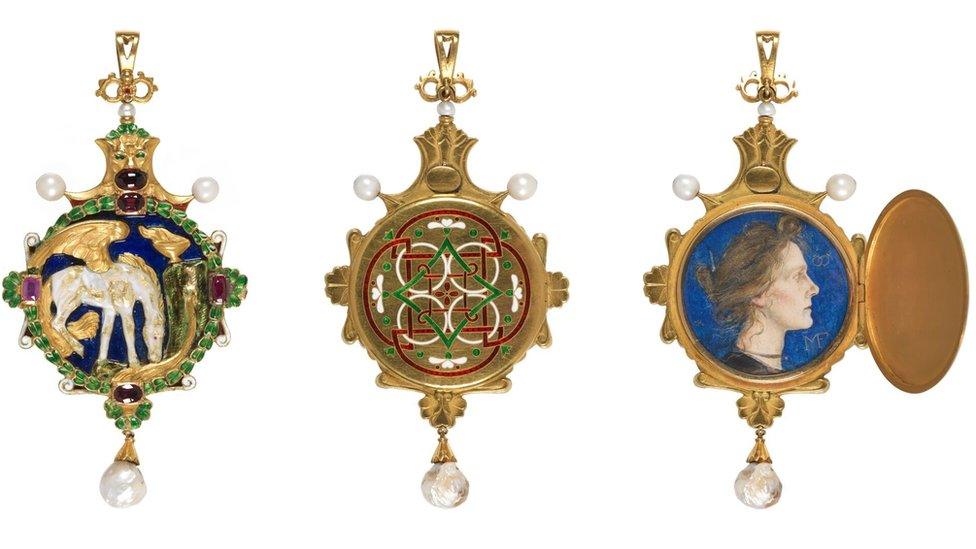Defaced money show in Cambridge addresses 250 years of anger
- Published
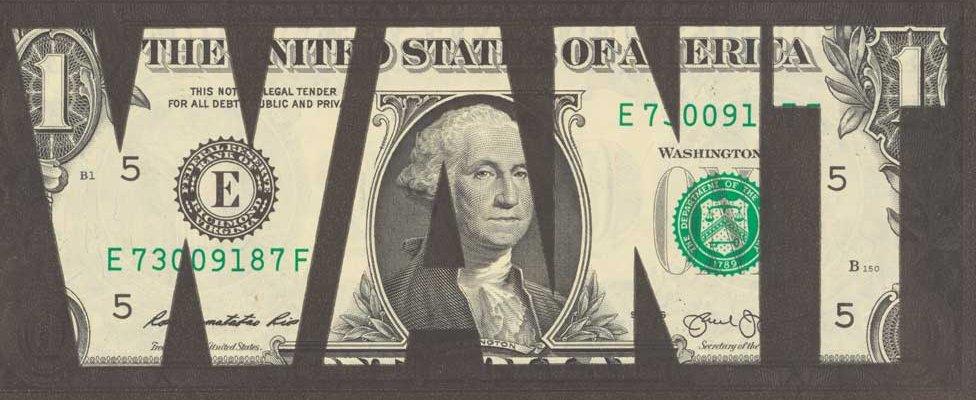
The exhibition reveals how currency has been defaced for centuries as a means of social commentary
Punched, scratched and digitally-manipulated money will be put on show as part of a new exhibition.
It reveals how currencies have been "mutilated" by campaigners to address issues of social, political and racial injustice covering 250 years.
These include the Suffragettes, the US and French revolutions and the Black Lives Matter protests.
"Defaced! Money, Conflict, Protest" is at the Fitzwilliam Museum in Cambridge, external from Tuesday.
Some of the exhibits are merely artworks that incorporate currency, such as Boo Whorlow's Dog Save The Queen, featuring Queen Elizabeth II walking dogs and a union jack flag.
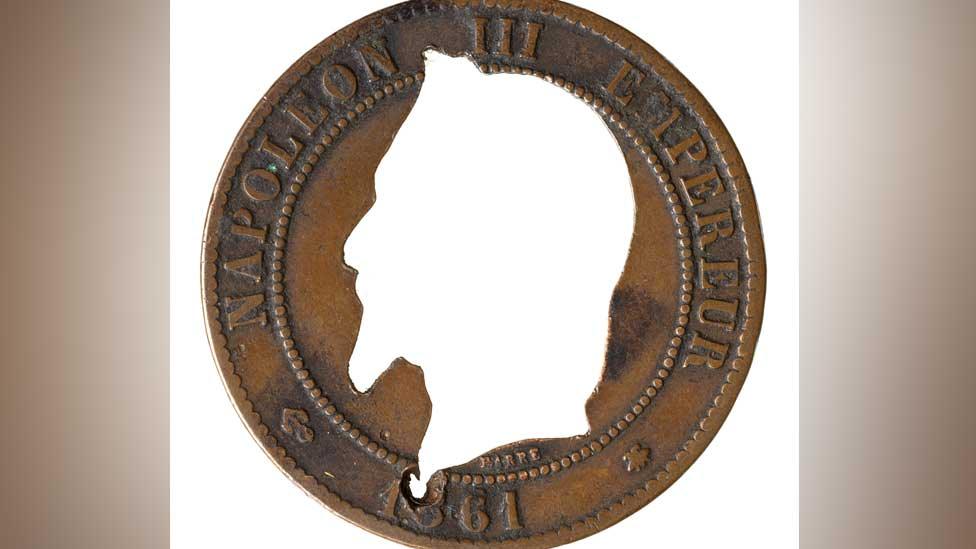
The most significant defacement of coins recorded in Europe was in France targeting Napoleon III's image, after Paris was starved into submission by the Prussians in 1871
Curator Dr Richard Kelleher said: "This is the first major exhibition to present a world history of protest through currencies mutilated as cries of anger, injustice or despair.
"The acts of defacement on show reveal the hidden struggles behind some of the major events of the past 250 years, as disparate as the French and American Revolutions, the Suffragette movement, the Siege of Mafeking, the Spanish Civil War, the Nazi concentration camp system and occupation, the deadly sectarian Troubles in Northern Ireland, and the Black Lives Matter protests."
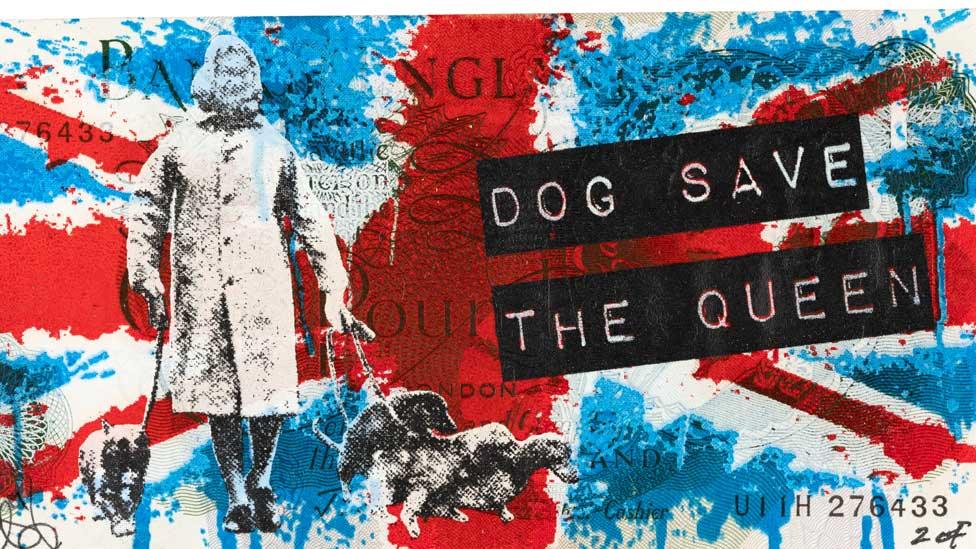
Boo Whorlow's money artworks often make reference to the Royal Family, here paying homage to Jamie Reed's Sex Pistols/God Save the Queen image
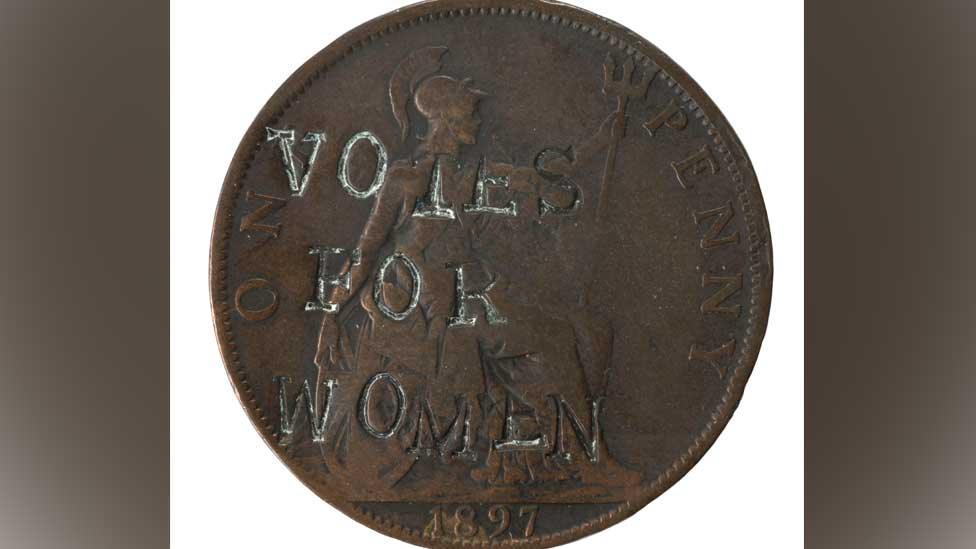
Defacing coins and putting them back into circulation was not a major campaigning strategy for British Suffragettes, but it did attract national press attention
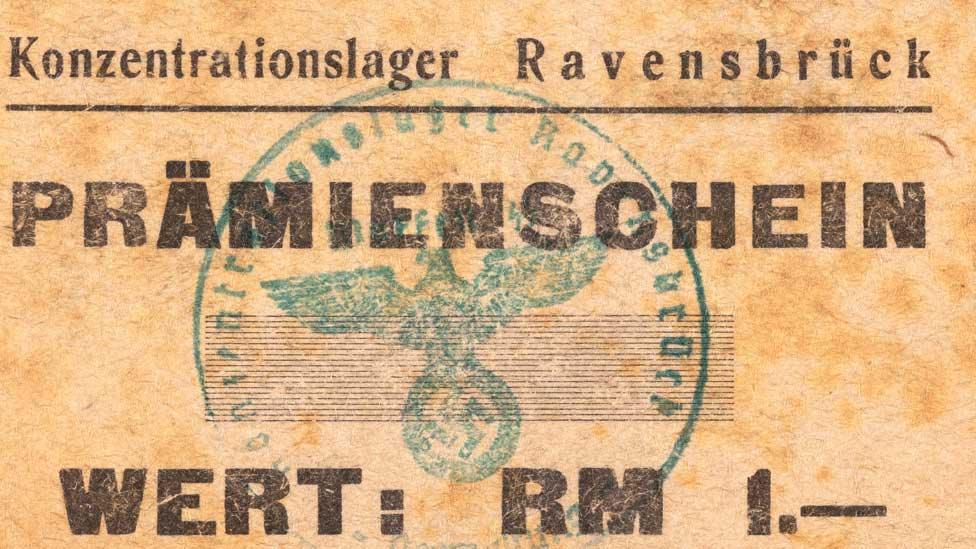
The Nazis issued money specifically for use in their concentration camps to create an illusion of normality, but they often could not be used as there was nothing to buy
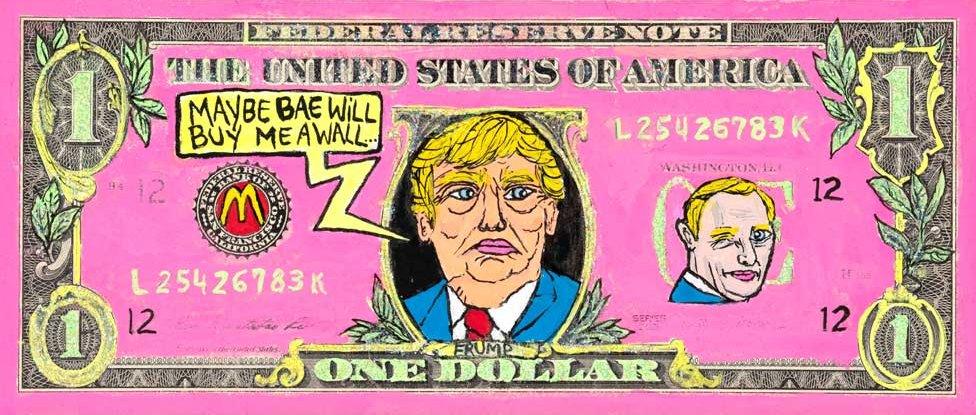
Sean Kushner's dollar bill makes reference to Donald Trump's meeting with Vladimir Putin (who is referred to a "ba[b]e") and the former US president's proposed wall along the US/Mexico border
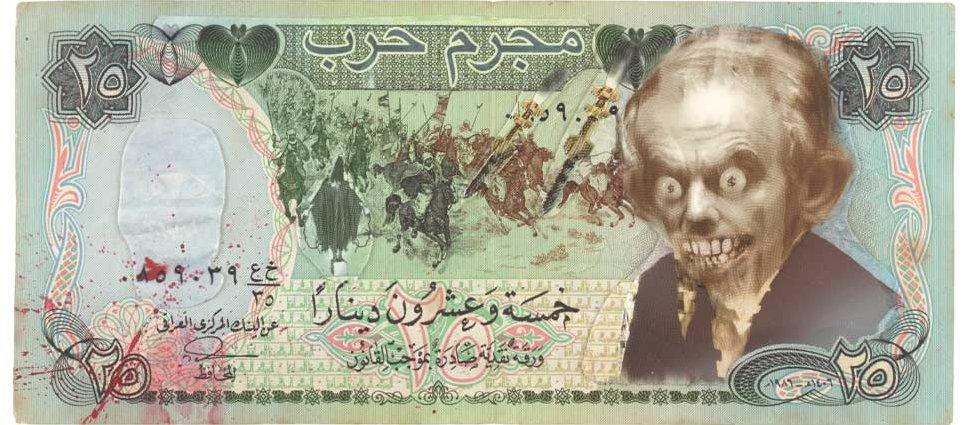
Wefail satirises the invasion of Iraq in 2003 by superimposing UK Prime Minister Tony Blair over Saddam Hussain on an Iraqi banknote
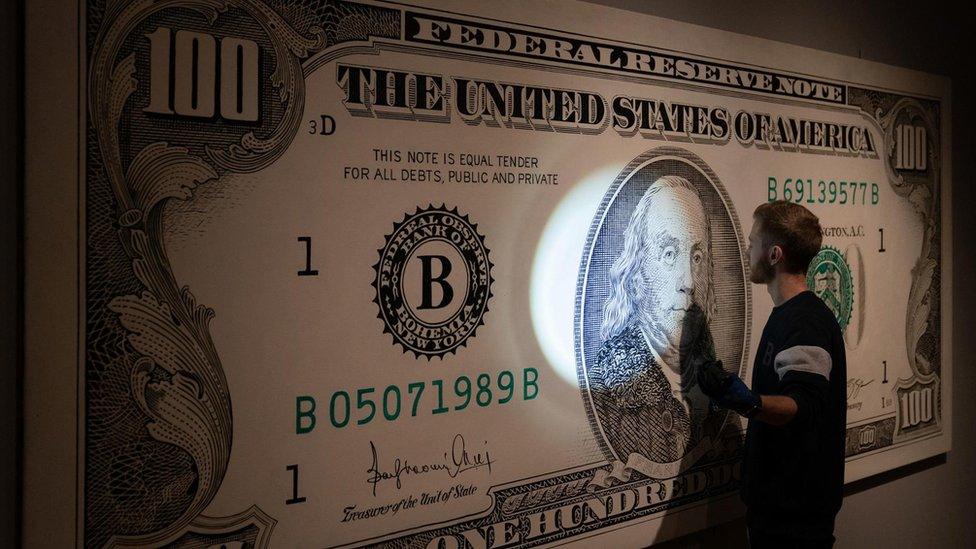
JSG Boggs subtly alters the $100 bill, such as changing "Treasurer of the United States" to "Unit of State", to "use humour to undermine state authority"
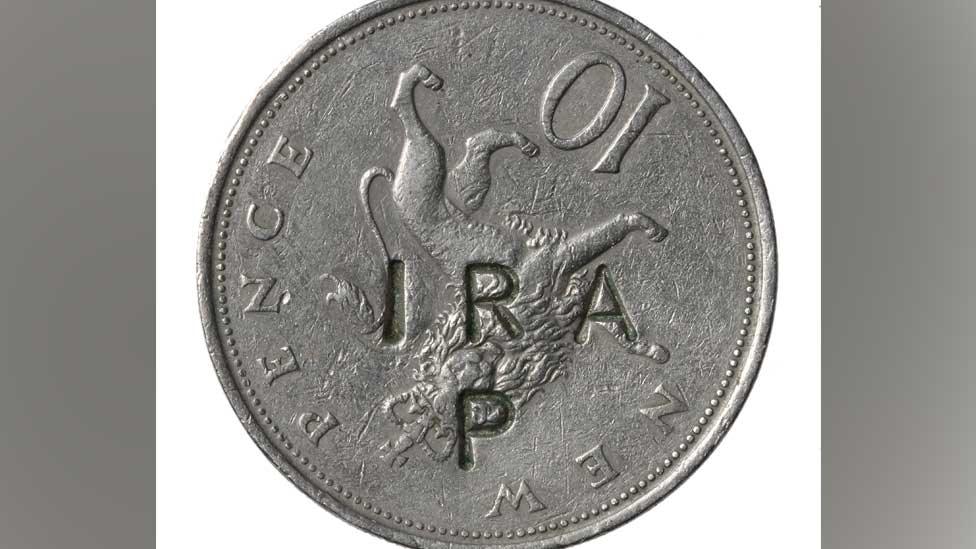
During the sectarian Troubles in Northern Ireland, coins were frequently defaced, such as this one being stamped with the initials for the Provisional Irish Republican Army
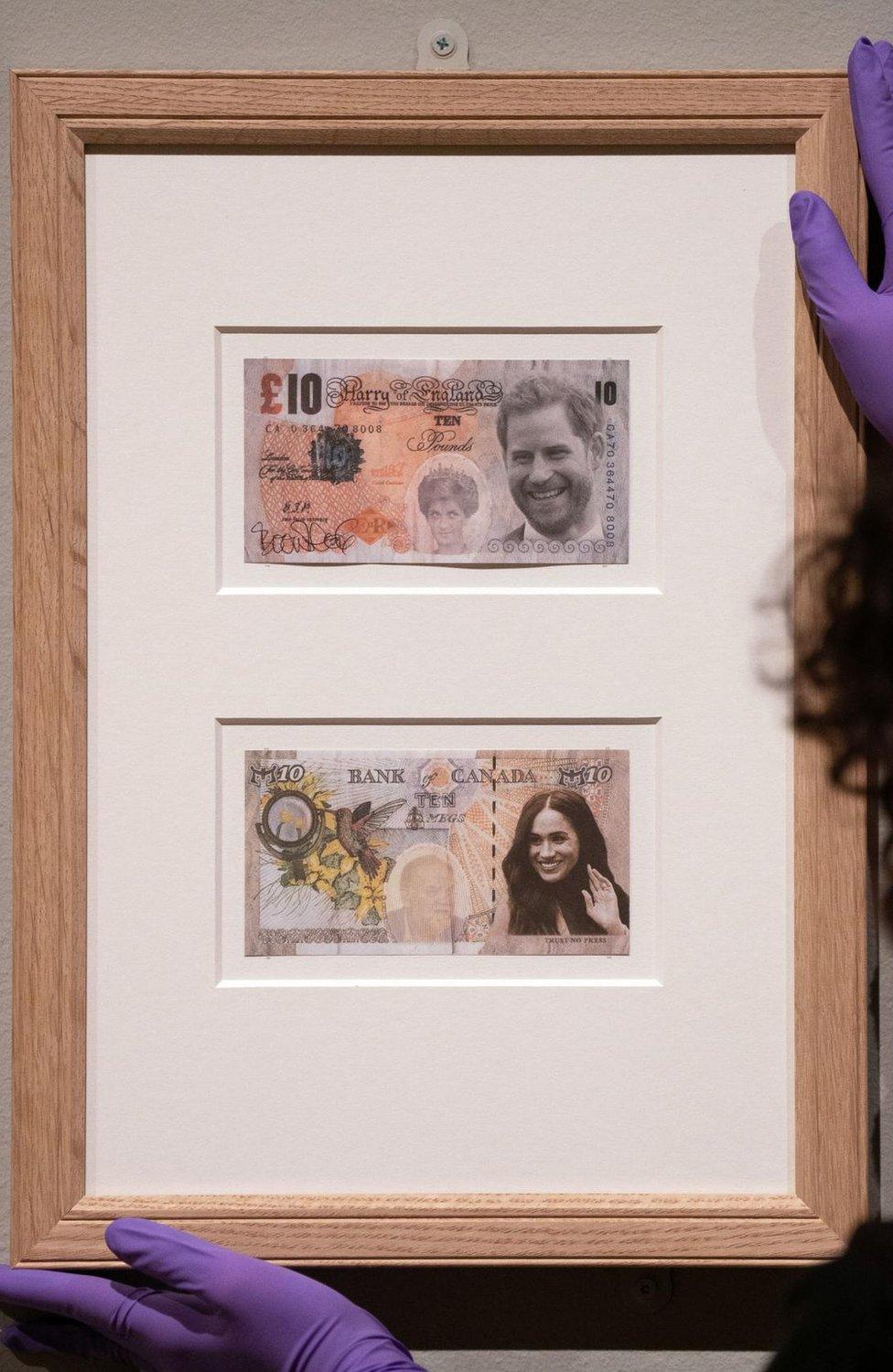
Harry of England/Ten Megs is another work by Boo Whorlow
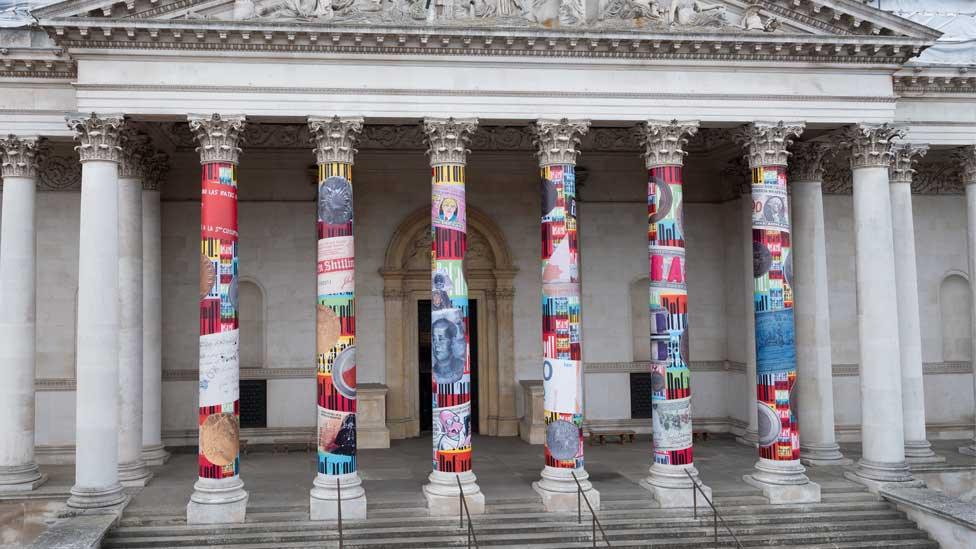
Dr Kelleher said that in a climate of inflation and debt "the exhibition's themes in which currency continues to be created and defaced in protest remain urgently relevant"
The free exhibition runs until 8 January.

Find BBC News: East of England on Facebook, external, Instagram, external and Twitter, external. If you have a story suggestion email eastofenglandnews@bbc.co.uk, external
Related topics
- Published21 February 2022
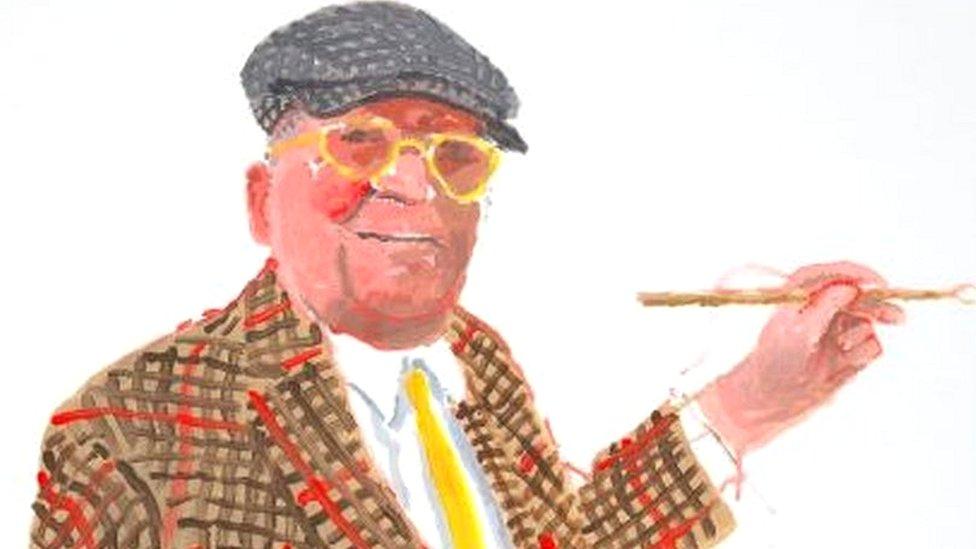
- Published9 August 2021
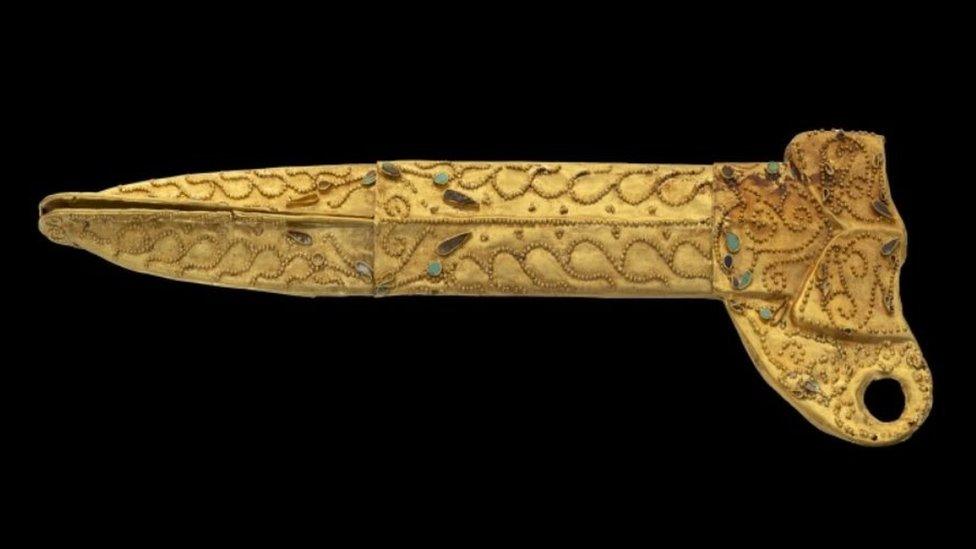
- Published28 July 2018
